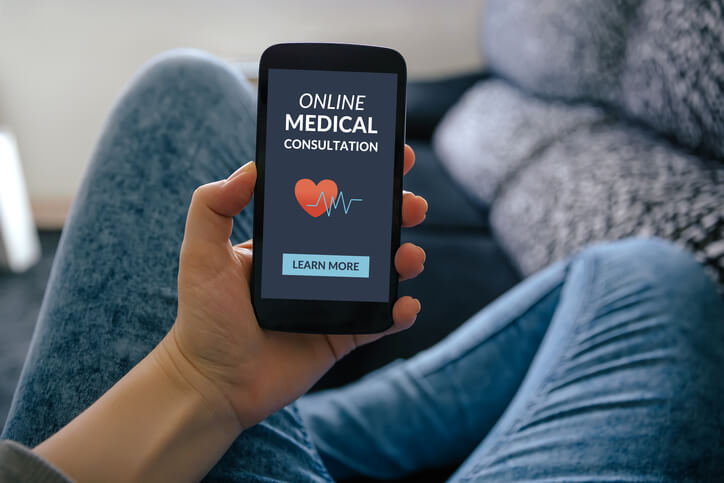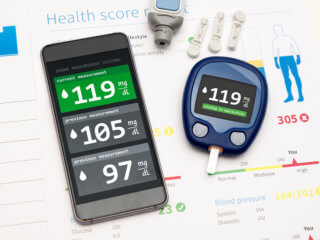Let’s be honest, being sick is a struggle, and the only thing you often do is drag yourself out of bed to see the doctor and stay in a waiting room hoping to be the next. Times has changed with the new era of virtual consultations. Virtual doctor visits are swiftly achieving acceptance these days as more health insurance companies offer telemedicine services to help cut costs. New Studies have shown that virtual care may efficiently used to treat common health problems such as cold, acne, headache, migraine and urinary tract infections.
Phone or Video doctor consultations can save patients time and money. At $40 to $50, the cost is approximately the same as a regular doctor consultation, but can also be as low-cost with a $20 per month subscription.
Modern-day patients seeking information from Dr. Google
In this digital DNA age, patients lookout for quick, alternative, and easy, risk-free methods to address a less severe medical issue before pledging money and time to a medical consultation and medication.
As per a report gathered by the Pew Research Center’s Internet & American Life Project, 1 in 3 American Adults has used the web to figure out a medical problem. Of all those users hoping to find solutions online:
- 46% firmly believes they require to seek professional medical assistance to be certain.
- 38%thought they could handle their illnesses in the privacy and comfort of their homes.
- 11% ended up doing both. The precision of accessed information online is a different matter overall.
- 41 % of those who sought medical advice got diagnostic confirmation from actual physicians, and an extra two percent only got partial evidence.
- 18 % were met with the difference or a different diagnosis.
- 1% got an uncertain reaction.
| Recommended for you | |
| Top 10 apps for video consultations | |
| Hospitals are becoming networks: Telemedicine | |
| Top 10 startups that digitize health care |
Apps Vs the web: Which platform patients are using more globally?
Per Medical News today, Nearly 20% of smartphone users globally have one or more applications on their device that helps them track or manage their health. It is projected globally that 500 million smartphone users will be using a healthcare app by 2018.
As per the Food and Drug Administration (FDA),
“Medical devices that are mobile apps meet the definition of a medical device and are an accessory to a regulated medical device or transform a mobile platform into a regulated medical device.”
Mckinsey Digital Patient Survey 2014 Report mentioned, more than 70% of all older patients in the UK and Germany want to use traditional digital health care services; in Singapore, that number is even much higher. There is a shift between the types of patients wants to utilize digital medium, though. Older patients prefer traditional digital channels such as websites and e-mail, while younger patients are, naturally opt to newer channels such as social media and apps.
The market of digital health care services
The digital health care market could stand at an astonishing $86 billion by 2020, a rise of 20.8 % YOY over a 5-year period, according to Kalorama Information. Availability of online services and mobile apps are being released to put up different needs and preferences -calling a doctor to video conferencing. Here’s a quick glimpse at a range of companies that are shifting the way patients access healthcare.
American Well partners with employers, health plans carriers, and delivery networks to take telehealth programs to the market through mobile and web technology. It gives people convenient access to medical care from chronic care management to post-surgical checkup.
MDLIVE works with Board Certified therapists and physicians and to deliver medical and behavioral health services by phone or secure video. MDLIVE secured $50 million in funding from Bedford Funding in June 2015.
The first Opinion allows users to text a doctor at any time to ask basic health questions and find out whether a trip to the physician’s office is essential. Texting a doctor through the service is free. Per its website, First Opinion has raised $8.6 million in funding.
Doctor on Demand was founded by TV celebrities Dr. Phil and his son Jay McGraw, who both produces the television show, “The Doctors.”Doctor on Demand allows customers to see a doctor to diagnose ailments via video consultations.
The pager is taking back physician house calls. The Pager app lets users contact on-demand doctors from 8 am to 10 pm every day of the week. A doctor evaluates patients’ medical situation via video conferencing, and if required, will come to them within 2 hours’ time frame to provide care.
Do virtual consultations compromise doctor-patient relationship?
With the rise of online health care services, some physicians or consultants are still cynical of its effectiveness. Dr. Sidani, a professor at Meharry Medical College, says the only means he would practice telemedicine if the information were communicated to him by a registered nurse. He accentuates,
“face-to-face interaction is crucial for adequate diagnosis……. If it is over the phone, I won’t be able to see that patient’s face…… It can tell a lot about whether he is in severe pain or distressed or not. And the way he is moving. Body language is very important.”
Source: Dial-a-doctor, online services cut office visits – USA Today
Video conferencing would seem to be the rational answer, Dr. Rakesh Khatri, Medical Director of the Stroke Care Now Network, has experienced tells stroke in similar settings that were both furnished with video. He proceeds, “Even though it may be more useful to have information communicated to you by a doctor or nurse, but when you talk to a patient. It’s a more of a personal touch. You can look and connect with the patient. Occasionally when you are uncertain, seeing the patient allows you to make definite decisions.”
Conclusion
Critics and Pundits of healthcare industry warn of losing the human touch with webcam-only visits, and say that people also need to ensure the doctor they are working with is licensed.
It is significant to remember that these apps and web services are not swaps for regular doctor appointments, principally with a physician who has known you for quite a long time. In any case, for diseases and side effects such aren’t reality undermining, these next-gen health apps can save time, energy and money — which are good options when you are not up to waiting in a doctor’s office.
With the possibility to make universal healthcare more available and affordable without sacrificing quality, online medical services and apps look to have a beautiful future!
Image credit: www.istockphoto.com

















